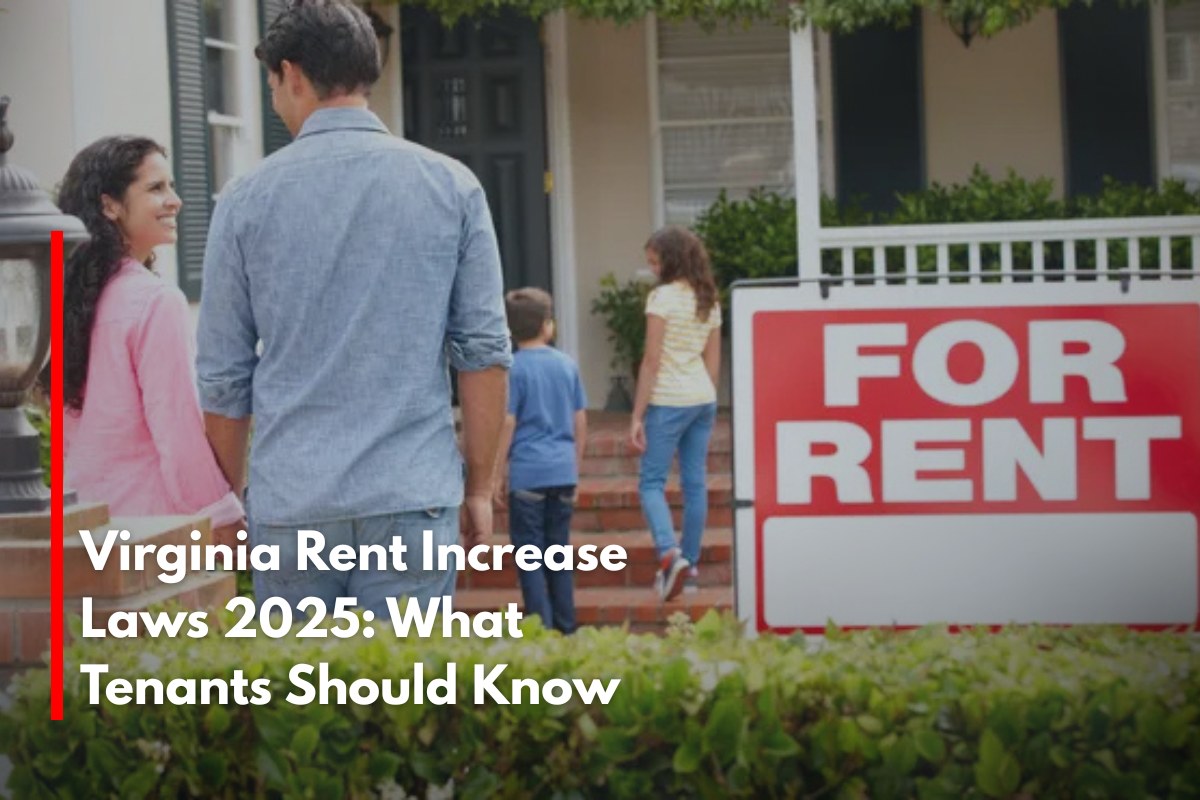As the rental market continues to evolve in Virginia, tenants and landlords alike need to understand the state’s rent increase regulations as of 2025. This article provides a detailed overview of Virginia’s rent increase laws, tenant protections, and recent legislative changes to help renters stay informed.
No Statewide Rent Control or Caps on Rent Increases
Virginia does not have statewide rent control laws that limit how much landlords can raise rent. Landlords are generally free to increase rent by any amount once a lease ends or upon renewal, provided they give proper written notice to the tenant. This means rent increases can reflect market conditions and are not restricted by caps or formulas imposed by the state.
Notice Requirements for Rent Increases
While there are no limits on the amount of rent increase, landlords must adhere to notification rules:
For month-to-month leases, landlords must provide at least 30 days’ written notice before the rent increase takes effect.
For leases with fixed terms (e.g., 6 months, 1 year), landlords must notify tenants of any rent increase at least 30 days before the lease expires.
Week-to-week tenancies require a minimum of 7 days’ notice for rent increases.
All rent increase notices must be in writing. Verbal notifications do not meet Virginia’s legal standards.
Local Ordinances and Emerging Rent Stabilization Efforts
Although Virginia law bars statewide rent control, local governments may adopt anti-rent gouging ordinances under specific legislation passed recently. For example, some localities have begun requiring landlords to provide longer notice periods—up to 60 days in certain jurisdictions—before a rent increase is effective. This evolving patchwork of local rules means tenants should check for specific city or county laws that may offer additional protections beyond state requirements.
Tenant Rights and Protections
Virginia tenants enjoy several protections, including:
Protection Against Discriminatory or Retaliatory Increases: Landlords cannot raise rent unfairly based on race, religion, sex, familial status, disability, or as retaliation for tenants exercising their legal rights.
Right to Habitable Housing: Rent cannot be increased as a penalty or retaliation for the tenant demanding repairs or maintenance to meet state habitability standards.
Security Deposit and Fee Regulations: New laws require landlords to disclose rental fees clearly and prohibit excessive “junk fees.” Landlords must provide written receipts for cash or money order payments.
Recent Legislative Updates for 2025
Effective July 1, 2025, several key landlord-tenant law changes take effect in Virginia:
Lease agreements must now disclose all rental fees explicitly on the first page.
Landlords owning more than four rental units must provide at least 60 days’ written notice before deciding not to renew a lease.
Eviction diversion programs have expanded statewide to help tenants avoid eviction through repayment plans.
Lease termination rights have been broadened to protect victims of stalking and trafficking.
What Tenants Should Do If Faced with a Rent Increase
Review your lease carefully to understand when and how rent can be increased.
Ensure any rent increase is provided via written notice within the required timeframe.
If you believe a rent increase is retaliatory, discriminatory, or excessive compared to similar rentals, seek legal advice or assistance.
Stay informed about local ordinances that may offer additional protection.
Summary
Virginia currently has no rent control or limits on how much rent can be increased.
Landlords must provide proper written notice before increasing rent: 30 days for month-to-month leases and 30 days before lease expiration for fixed-term leases.
Localities may enact anti-rent gouging laws and longer notice requirements.
Tenants are protected against discriminatory and retaliatory rent increases.
New 2025 laws enhance tenants’ rights regarding lease disclosures, eviction protections, and notice requirements.
Understanding these regulations empowers tenants to better navigate rent changes, ensuring their rights are protected amid a dynamic housing market in Virginia.
For personalized advice on rent increases or tenant rights, consulting a qualified attorney or tenant advocacy group is recommended.
Sources
[1] https://www.hemlane.com/resources/virginia-rent-control-laws/
[2] https://legacylis.virginia.gov/cgi-bin/legp604.exe?251+ful+HB721
[3] https://www.doorloop.com/laws/virginia-rent-control-laws
[4] https://lis.virginia.gov/bill-details/20251/SB1136/text/SB1136
[5] https://www.steadily.com/blog/how-much-can-a-landlord-raise-rent-in-virginia











